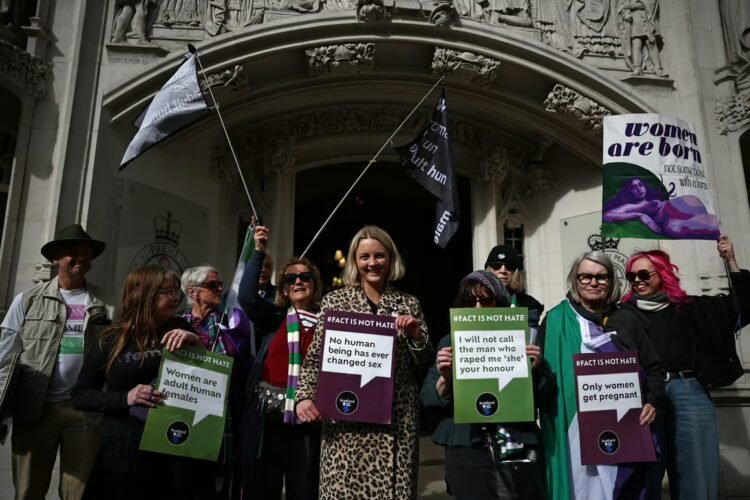The U.K. Supreme Court ruled on Wednesday that, under the law, the term “woman” refers exclusively to individuals born biologically female. The decision follows a protracted legal battle between the Scottish government and the advocacy group For Women Scotland (FWS) over the legal definition of “woman” and the rights of transgender individuals.
The case stems from a 2022 legal challenge by FWS to a 2018 Act of the Scottish Parliament, which defined “woman” to include individuals with the protected characteristic of gender reassignment — including those who live as women or have undergone, are undergoing, or plan to undergo gender reassignment. Scottish civil courts previously ruled that this broader definition exceeded the powers of the Scottish Parliament and required revision.
The definition was amended in 2023 to state that individuals with a Gender Recognition Certificate (GRC) identifying them as female would legally be considered women. FWS appealed that update to the U.K.’s highest court, which has now ruled in their favor.
In a unanimous decision by five justices, the Supreme Court clarified that, under the 2010 Equality Act, certain protections and access to single-sex spaces — such as changing rooms, shelters, and medical services — may lawfully be reserved for biological women.
While the ruling affirms the legal exclusion of transgender women from some women-only categories, it also emphasized that trans individuals remain protected under U.K. anti-discrimination laws. The court said the decision should not be viewed as a political or ideological win for one group.
Despite this, supporters of FWS hailed the outcome as a landmark moment. “Everyone knows what sex is and you can’t change it,” said Susan Smith, co-director of For Women Scotland, outside the court. “It’s basic common sense… hopefully this will now see us back to reality.”
The ruling comes amid intensifying global debates over gender identity, biological sex, and the rights of transgender individuals. In the United States, Republican-led states have passed laws restricting gender-affirming care and limiting transgender inclusion in sports and public facilities.
In contrast, Canada has upheld strong legal protections for transgender individuals under the Canadian Human Rights Act and the 2017 Bill C-16, which prohibits discrimination based on gender identity and expression.
The U.K. decision adds a new chapter to the broader international conversation surrounding gender, identity, and the scope of legal protections in increasingly polarized political climates.

 English
English



























































